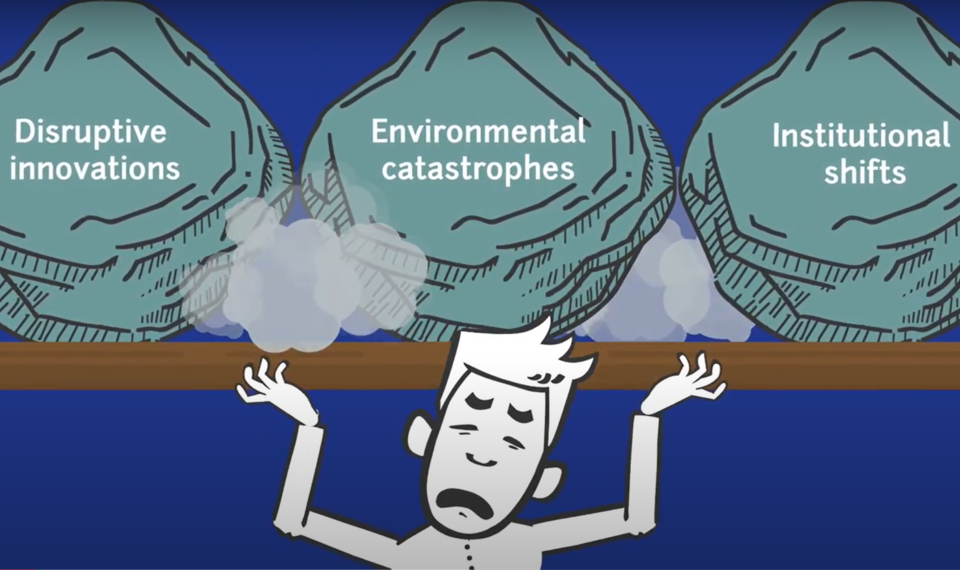Intuition and reflection, the eternal struggle. Marlon Alves, assistant professor of Strategy at SKEMA Business School, together with Vincenzo Vastola, Simone Galina, and Maurizio Zollo examined the role of intuition and reflection on team adaptation in extreme situations. And the results of their study show that intuition can be very useful…
The book “Thinking, Fast and Slow” by Nobel laureate Daniel Kahneman popularized the concept of human cognition as the interplay between two cognitive types: intuition and reflection. Intuition is fast, unconscious, and emotional. Reflection is slow, analytical, and effortful. This concept has been applied to the business world and it has changed how managers view decision-making practices, recruitment processes, and consumer behavior. Now, a new study led by Marlon Alves from SKEMA Business School brings new insights into this area.
A virtual game
Marlon Alves together with Vincenzo Vastola, Simone Galina, and Maurizio Zollo examined the role of intuition and reflection on team adaptation in extreme situations such as disruptive innovations, environmental catastrophes, and institutional shifts. All of a sudden, the way things are done and the rules for success no longer apply. To survive and maintain their competitive position, organizations must adapt their processes before it is too late.
The authors designed a virtual game and examined the behavior of 160 managers working in teams. Managers developed efficient processes during the first part of the game, after which they were asked to play a second round following new rules without prior notice. In this way, they introduced an extreme change that made previous processes obsolete. Immediately before the second round, managers were primed for either intuition or reflection to observe how the cognitive types influenced team adaptation.
Intuition and reflection, the ideal wedding
Their findings show that intuition is more helpful than reflection in this type of extreme situation. Right after the extreme change, all teams experience a drop in performance. However, teams that used intuition differed in four dimensions:
- Flexibility: teams were able to abandon previous processes that no longer make sense with new rules.
- Speed: teams increased their pace in each additional round played.
- Routinization: teams found solutions that work most of the time (although not always) and used them repeatedly.
- Coordination: managers were more able to coordinate their actions with their peers.
A key insight from the study is that intuition is particularly helpful after extreme situations in markets with high ambiguity. Markets with less information on customer preferences or regulations increase the ambiguity for decision-makers. Intuition allows managers to leverage smaller sets of information from ambiguous environments through nonconscious pattern-matching processes. Data shows that cognitive type accounts for 60% of differences in performance in these markets. The study offers two main takeaways. The first relates to the design of knowledge-management systems and formal procedures of analysis. The results suggest that excessive reliance on such structures can jeopardize managerial action by leaving limited space for intuition. The second refers to human capital management. Organizations might not realize the full potential of their human capital if they do not embrace diversity in respect of cognitive processing capabilities. Intuition and reflection each afford specific advantages, and diverse teams can benefit from gathering disconformity evidence, discussing uncertainties, and confronting cognitive biases to drive organizations’ competitive advantage. To be clear, the study does not argue that organizations should always prefer intuition and reflection. Instead, managers should consider the fit between the two cognitive processes, the environment, and the associated behavioral demands. The ones able to do that, certainly will be ahead of the competition.






